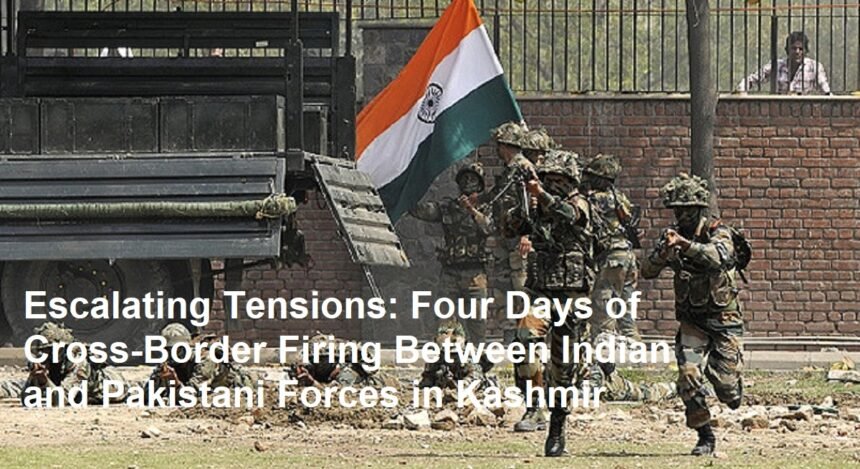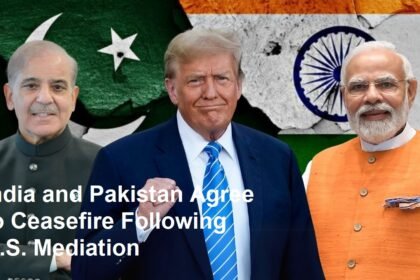The disputed region of Kashmir has once again become the focal point of geopolitical concern as reports emerge of sustained cross-border firing between Indian and Pakistani forces. Over the past four days, a series of incidents involving small arms fire and mortar shelling have been reported along the Line of Control (LoC), the de facto border dividing the region between the two nuclear-armed neighbors. This escalation, while not unprecedented, raises significant concerns about the potential for further instability and the fragility of the already strained relationship between India and Pakistan.
The exact sequence of events and the instigating party remain contested. Both sides have accused the other of initiating the hostilities and violating the 2003 ceasefire agreement, a pact intended to maintain peace along the LoC. Indian officials claim that Pakistani forces have been deliberately targeting Indian military posts and civilian populations in border villages, while Pakistan accuses Indian troops of unprovoked aggression and indiscriminate firing. This reciprocal blaming game, unfortunately, is a recurring feature of the volatile dynamics in the region.
The impact of this ongoing cross-border firing is multi-faceted. Firstly, it directly endangers the lives and livelihoods of civilians residing in the border areas. Residents have been forced to seek shelter in bunkers or evacuate their homes entirely, disrupting their daily routines and creating a climate of fear and uncertainty. The disruption to agriculture and trade in the region further exacerbates the economic hardship faced by the local population.
Secondly, the escalation serves to further deteriorate the already tense diplomatic relations between India and Pakistan. Despite occasional attempts at dialogue, the relationship remains deeply entrenched in mutual distrust and suspicion. This recent surge in hostilities is likely to further harden positions on both sides, making any prospect of meaningful reconciliation more difficult. The potential for the conflict to spill over into a broader regional crisis remains a significant concern, particularly given the history of armed conflicts between the two nations.
Thirdly, the renewed violence draws attention to the unresolved issue of Kashmir. The dispute over the region has been a source of conflict between India and Pakistan since their independence in 1947. While both countries lay claim to the entire territory, each administers a portion of it. The lack of a mutually agreed-upon resolution perpetuates instability and provides fertile ground for extremist elements to operate, further complicating the security landscape.
Addressing this situation requires a multi-pronged approach. Primarily, both India and Pakistan must prioritize de-escalation and adhere to the 2003 ceasefire agreement. This necessitates establishing effective communication channels and mechanisms for immediate de-confliction. Independent monitoring of the LoC by a neutral third party, such as the United Nations, could also contribute to verifying ceasefire violations and promoting transparency.
Furthermore, a long-term solution requires a comprehensive dialogue between India and Pakistan to address the underlying issues contributing to the ongoing conflict. This dialogue must encompass not only border security but also broader issues such as trade, cultural exchange, and the resolution of the Kashmir dispute. While such a dialogue is fraught with challenges, it remains the only sustainable path toward lasting peace and stability in the region.
In conclusion, the four days of cross-border firing between Indian and Pakistani forces in Kashmir serve as a stark reminder of the fragility of peace in the region. While the immediate priority is to de-escalate the situation and protect civilian populations, a long-term solution requires a renewed commitment to dialogue and a genuine effort to address the root causes of the conflict. The international community must play a constructive role in facilitating this process and promoting a peaceful resolution to the long-standing dispute over Kashmir. Failure to do so risks perpetuating a cycle of violence and instability with potentially far-reaching consequences.









